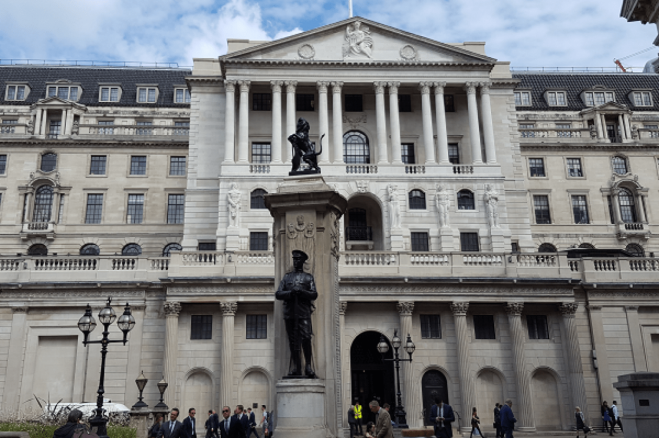
Pick your poison, Brexit or CySEC? (The Cappitech July Newsletter)
Happy Monday!!
We recently launched a newsletter and this is our July edition. The newsletter reviews current events in the online trading world with actionable analysis. Subscribers get an extra section that doesn’t appear on the blog (subscribe here).
So, with that out of the way, what’s happened over the past month? Well, we had some tiny event called Brexit.
If that wasn’t enough, a bunch of news also emerged from CySEC, the Cypriot financial regulator that oversees a huge swath of the online trading industry in the EU.
While the Brexit surprise shook up the markets, what’s going on in Cyprus isn’t less important for the forex/binary options/CFD industry.
Why Cyprus matters?
Let’s take a look at what is going on there.
At the end of June, according to media reports, CySEC sent a circular to license holders about outsourcing marketing services. For those unfamiliar with CySEC brokers, the vast majority of licensed firms are backed by groups that emanate from countries outside of Cyprus such as from Russia, Israel and Gulf countries. As such, many of them maintain sales forces in their home countries that are responsible for a large percentage of sales and support of customers. The non-Cyprus staff officially operates as a separately managed outsourcing firm of sales and marketing services.
In their circular, CySEC issued opinion on the 3rd party sales and marketing outsource structure. According to CySEC, actions by outsourcing firms is limited to supporting client inquiries about the broker, account registration, platform questions and product risks.
Becoming prohibited to the outsourced staff are outbound sales calls as well as providing financial advice. In addition, CySEC stated that the broker’s actual staff in Cyprus is prohibited from using aggressive sales tactics.
The bottom line of why this matters is that CySEC is targeting changes to a broker model that has been used for years. The result is that many firms will either have to utilize more staff in Cyprus, or launch automation software as a replacement for real person client engagement.
Part of the bigger picture
CySEC isn’t the only regulator focusing on illicit behavior in the online trading industry. In April, ESMA published an EU-wide Q&A paper on conflicts of interest occurrences in the CFD/Forex/Binary Options industry.
In that publication, ESMA pointed out problems with using a dealing desk model and its inherent conflicts of interest. While they didn’t advise to ban dealing desks outright, they did state that the model should be avoided.
The combination of the CySEC circulars and ESMA analysis on conflicts of interest shouldn’t be viewed as coincidental. All industry indicators point to the fact that regulators are interacting together and tougher rules for forex brokers are both currently here and will continue in the future.
For brokers, this means a higher barrier of entry to become regulated and comply with new monitoring rules such as EMIR regulations.
Brexit
As seen above, the big trend in the trading industry is regulatory enforcement. With it, brokers will need to decide whether they want to become/stay regulated with the tighter and more expensive rules, or simply operate as unregulated entities.
Nonetheless, Brexit is still a force to be reckoned with.
Volatility = account growth
Most people are focusing on forecasting what the post-Brexit future holds for financial companies. An important question, but still very speculative. (Our thoughts on potential effects on EMIR reporting)
Highly likely there will be some sort of UK/EU trade agreements that will allow for an evolved form of cross-border account onboarding for financial firms across neighboring nations. But, rather than waiting for more information about what will happen, there is money to be made in the present.
Across the board, retail brokers have stated that Brexit volatility has led to not just a surge in volumes, but also opening of new accounts. Even UK firms are seeing strong account growth as speculators are piling in to take advantage of the volatile markets.
Swiss franc trading 2.0
The account growth is reminiscent of the Swiss franc crisis of January 2015. Despite the franc volatility leading firms out of business and creating negative headlines around the world of the risks of forex trading, it also triggered higher new account growth.
Rather than casual traders perceiving the forex industry as a place to avoid, the Swiss franc crisis created renewed awareness of forex, and the potential rewards to be made when betting on the right direction of the market. This in turn drove interest and new account registrations higher.
As this process of volatility leading to new account openings again takes place following the Brexit voting, it shows us that market volatility is a primary driver of generating new customers.
While this cause and effect example may seem basic, in practice there aren’t many firms that are dynamic when it comes to adjusting their marketing campaigns. For firms willing to be flexible to adapt their marketing to changing conditions, it provides them a unique advantage compared to their slower moving competitors.
Story time – canary in the coal mine
[story and content marketing strategy available to newsletter subscribers]





